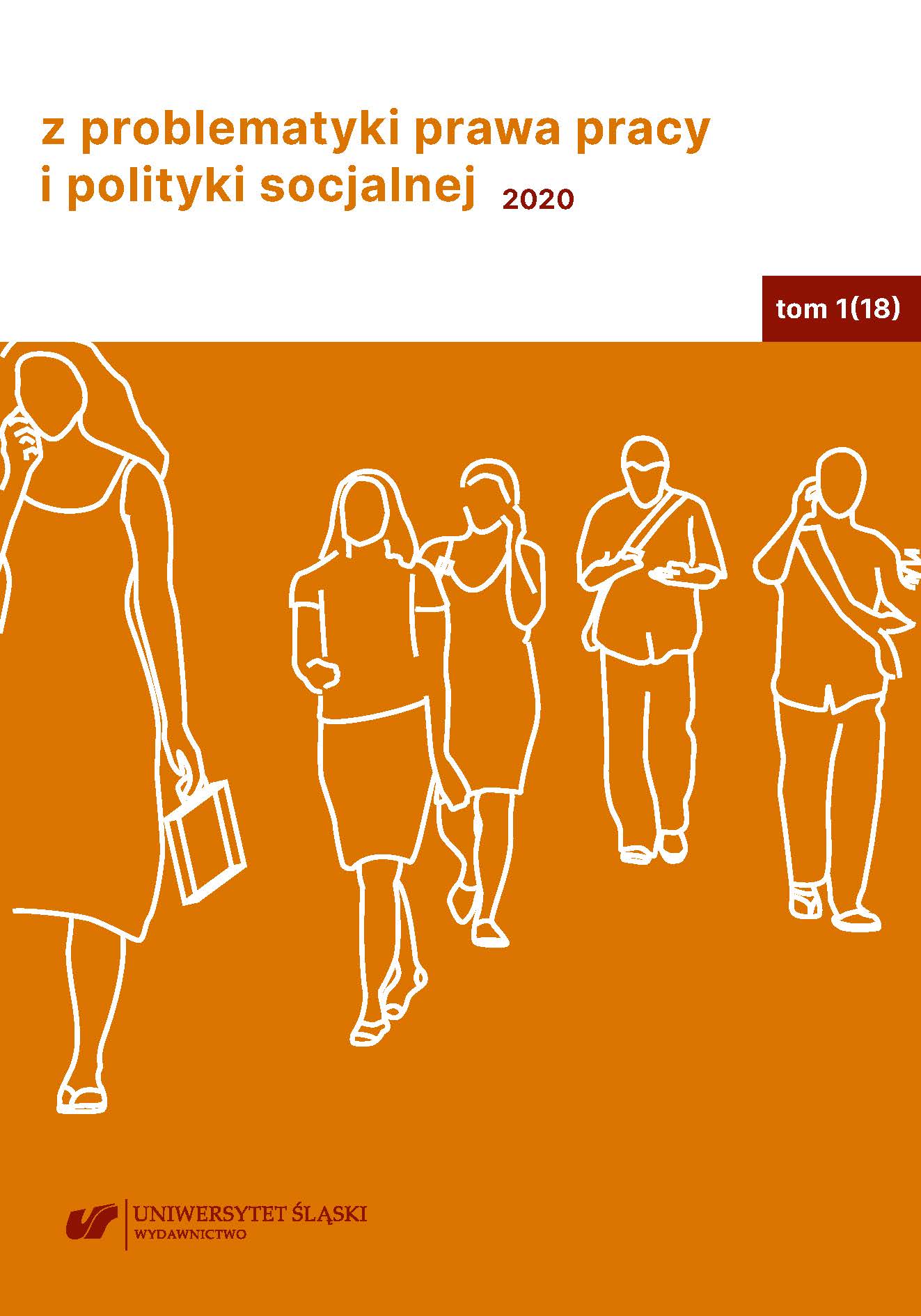Dyskryminacja pracowników wypełniających obowiązki rodzicielskie
Discrimination of employees performing parental duties
Author(s): Justyna Czerniak-SwędziołSubject(s): Politics and society, Labour and Social Security Law
Published by: Wydawnictwo Uniwersytetu Śląskiego
Keywords: discrimination; parental duties; protection of parents; parent-employee; work-life balance; compensatory claims
Summary/Abstract: Discrimination of employees who, apart from their professional duties, perform also parental duties, remains highly exceptionable. Professional life, as well as family life, constitute the most important spheres of a person’s life, inextricably connected and interdependent, but also highly competitive. The protection of such a parent-employee should entail not only granting them appropriate privileges, but also creating effective countermeasures (legal, extralegal) against discrimination. If being granted numerous privileges becomes the source of unequal treatment, then what occurs is unsanctioned discrimination on account of being a parent. The life choice of becoming a parent, and consequently, the fulfillment of related duties can have substantial impact on the employee’s treatment and position in their professional environment, and thus should be, de lege ferenda, included in the rules as a forbidden differentiation criterion. However, such protection against discrimination should encompass not only the current, but also prospective and former employees. The legislator has created several possibilities for the parent-employee to utilize in case of discrimination, such as immediate resignation with no notice (though not applicable in all cases) or compensatory measures, though these are by no means sufficient when it comes to real, actual protection from discrimination. Such protection from discrimination against parent-employees will not be comprehensive if it remains restricted only to the Employment Code solutions. Without specific solutions with regard to obligatory introduction of appropriate antidiscrimination policies by the employers, it will be impossible to guarantee full and effective protection measures. However, in order to be able to implement the protective solutions delineated by the Code, they should first be regulated so that there remains no question of their legal character as well as scope. Therefore, a change in the already functioning regulations is necessary.
Journal: Z Problematyki Prawa Pracy i Polityki Socjalnej
- Issue Year: 1/2020
- Issue No: 18
- Page Range: 35-60
- Page Count: 26
- Language: Polish

